Russian soldiers ‘electrocuted me until I smouldered’
A tortured Ukrainian forced to lie for Vladimir Putin is waiting for his chance to take revenge. “Ex-soldiers always tend to say they are fine, but I know I am not.”

When he emerged from incarceration, bruised and burnt by beating and electric shocks, the tortured ex-soldier cultivated a garden as his personal bastion of resistance.
Rather than accept Russian humanitarian aid, Dmytro sowed ranks of fruit and vegetables to help heal his unseen wounds and feed his sense of defiance. He planted herbal medicine to palliate his trauma. Determined not to touch even a Russian cigarette, he grew his own tobacco to smoke.
“I came out of captivity back into the Russian-occupied territory of my home, set never to rely on the Russians for humanitarian assistance or help of any kind,” Dmytro said, an edge of anger in his voice as he walked through vegetable beds outside his home in Kozacha Lopan. Shellfire rolled across the hills.
“I wanted nothing from them, not Russian handouts, not Russian goods,” said the veteran, who goes under an alias as his testament of torture is part of a Ukrainian investigation into war crimes. “Total self-sufficiency was a form of internal independence.”
Yet now, since Dmytro’s home town of Kozacha Lopan was liberated by Ukrainian forces two weeks ago, his self-reliance has set a standard on which locals are judged, as others less committed to resistance are accused of collaboration.
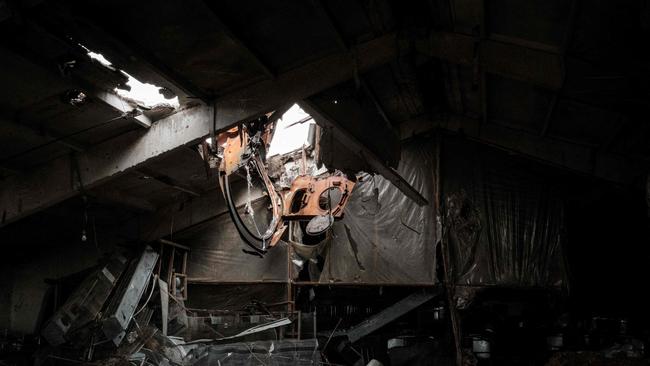
The small rural town north of Kharkiv, only three miles from the Russian border, is finding that its newfound freedom is beset by obstacles: internal discord and external assault. The 2,000 or so Ukrainians who endured occupation and remain here have no electricity, gas nor phone coverage.
A mass grave, yet to be exhumed, has been discovered among minefields on the outskirts. The area is battered daily by Russian rockets from over the border. One missile that landed in the centre of Kozacha Lopan on Sunday morning drove shrapnel into the face of a 20-year-old Ukrainian woman in a car by the town’s municipal office. She had only just succeeded in reaching the liberated town to see her mother after seven months of separation.
“It’s a simple Russian form of Russian messaging to terrorise,” Vyacheslav Zadorenko, head of the local civil-military administration, said as he sought to calm staff after the explosion. “They want to make fear and violence the price of our freedom.”
As it braces itself for a new chapter of conflict, accusations of collaboration run rife here. Several hundred people from the town and four surrounding villages left with the Russians before the Ukrainian advance on September 11, either because they had collaborated with the invading force or because they believed Russian propaganda and feared they would suffer at the hands of Ukrainian troops for having stayed.
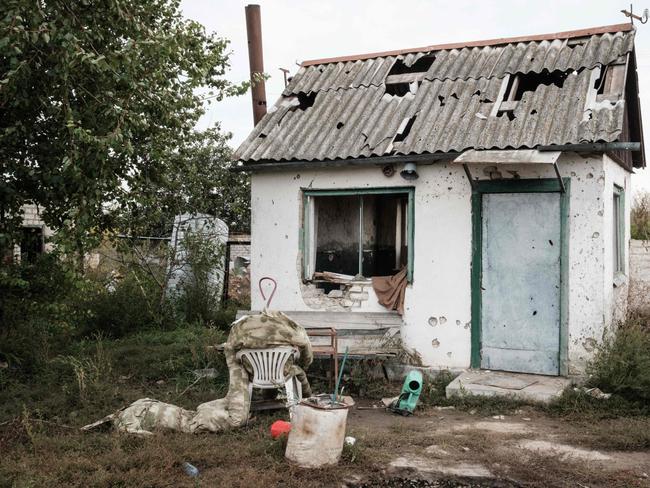
“Those who collaborated can never come back,” Zadorenko said. Ukraine has said that any citizens suspected of collaborating could be charged with treason and jailed for at least five years.
For those who remain in Kozacha Lopan, even the most banal exchange with Russian forces during the occupation may now earn suspicion. Any form of barter with the departed Russian soldiers can lead to trouble.
In the town’s shrapnel-pitted municipal office — where staff mopped a floor clean of the blood that had spilt from the wounded young woman — an elderly man who had traded with Russian troops was pleading to be understood.
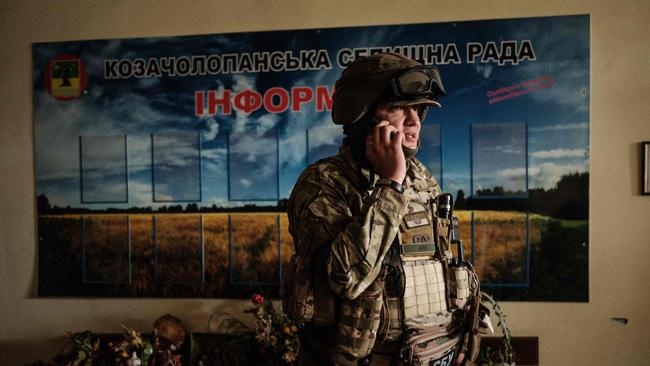
“I gave them some eggs and they gave me cigarettes. If I hadn’t, they would have taken the eggs anyway,” he explained to an official. “Now everyone is talking about me as a collaborator and rumours about me are flying. I am worried I will be investigated. I want to be honest about this. I didn’t collaborate.”
Dmytro, his sense of resistance forged by the pain of his torture, has little time for such excuses, however reasonable. He had served for three years as a non-commissioned officer in the Ukrainian army and saw active service in Donbas. He left the military in 2020, and had a job at a refrigerator factory when he was arrested by Russian troops in Kozacha Lopan in March, on account of his former active service.
Subjected to seven sessions of electric shocks lasting up to two hours while strapped to a chair by four soldiers, Dmytro described wishing to die to escape the pain.
“At one point I began slamming my head against the floor to end it,” he said. “The soldiers threatened me with more electrocution if I harmed myself. They said I didn’t get a choice in how to die.” He recalled the agony of electric shocks to his groin and genitals through the crocodile clips applied by his interrogators, who used such high voltage that a cable caused skin on his thigh to smoke.
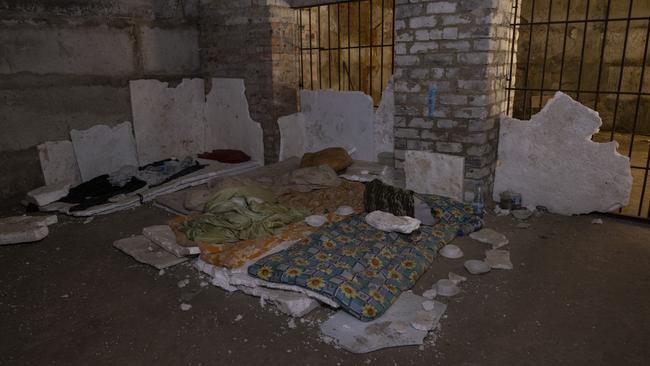
After four days of torture Dmytro was put in a room facing a Russian TV crew who had travelled to Kozacha Lopan. As he was filmed in a sham interview, two masked men off camera instructed the prisoner: he was told to describe himself as an active combatant captured on the battlefield and to give scripted answers, encouraging other soldiers to surrender.
After the interview he was moved to an improvised detention centre on the Russian border, where he worked in a labour gang filling sandbags.
He was eventually released after a further month in captivity, back into his occupied home town. Physically and mentally ravaged, it was then that Dmytro began to define resistance through self-sufficiency.
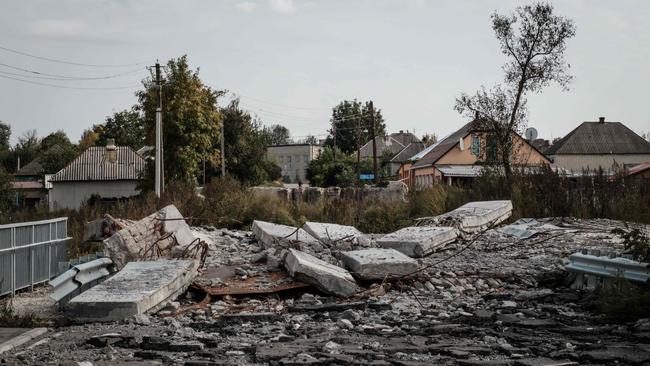
Having suffered shocks until he smouldered, the thought of smoking Russian cigarettes repulsed him. Leading me to a tobacco patch he had planted among his vegetables, he offered a smooth-tasting roll-up gummed with the oil of a cherry tree.
“Ex-soldiers always tend to say they are fine, but I know I am not,” he said quietly, his hands trembling. “I am going to keep gardening, and help the security services hunt collaborators. Then, once I am healed, I want to rejoin the army. The garden will help rehabilitate me until I am ready to fight again.”

To join the conversation, please log in. Don't have an account? Register
Join the conversation, you are commenting as Logout